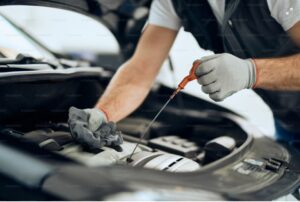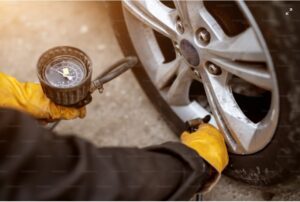Essential Car Maintenance Tips to Keep Your Vehicle in Top Shape
Owning a car comes with great convenience, but it also comes with responsibilities. Regular maintenance is crucial for keeping your vehicle safe, efficient, and running smoothly. Neglecting basic upkeep can lead to costly repairs and unexpected breakdowns. Whether you’re a new car owner or a seasoned driver, these essential car maintenance tips from Mcquigg Motors will help you keep your car in top shape.
Section 1: Basic Maintenance Tips
1. Check and Change Your Oil

Oil is the lifeblood of your car’s engine, ensuring all moving parts stay lubricated and reducing wear and tear. Here’s how to stay on top of it:
- How to Check: Park your car on a level surface and let the engine cool. Remove the dipstick, wipe it clean, reinsert it, and pull it out again to check the level. Ensure the oil is between the “minimum” and “maximum” marks.
- When to Change: Refer to your owner’s manual, but a general rule is every 5,000–7,500 kilometers. For older vehicles, checking more frequently is wise.
- Signs You Need a Change: If the oil appears dark and dirty, you hear engine noises, or the oil light illuminates on your dashboard, it’s time for a change.
Pro Tip: Always consult your mechanic to handle oil changes properly and avoid potential mishaps.
2. Monitor Tire Pressure and Tread

Your tires are your car’s connection to the road, and maintaining them is essential for safety and fuel efficiency.
- Check Tire Pressure: Use a pressure gauge to ensure your tires match the recommended PSI (found in your owner’s manual or on the driver’s side door frame). Check at least once a month and before long trips.
- Check Tread Depth: In Kenya, it’s important to ensure your tires have enough tread depth to handle various road conditions. A tread depth gauge is more reliable than visual tests and can be purchased affordably.
- Tip: Rotate your tires every 5,000–7,500 kilometers to ensure even wear and extend their lifespan.
Pro Tip: Consult a mechanic for tire rotation and inspection to ensure everything is in good condition.
3. Replace Air Filters

Air filters might seem minor, but they’re critical for your engine’s performance and fuel efficiency.
- Why It Matters: A clean air filter ensures optimal airflow to the engine, improving performance and reducing emissions.
- When to Replace: Typically every 12,000–15,000 kilometers, but dusty driving conditions in Kenya may require more frequent changes.
- Quick Check: Hold the filter up to the light. If light doesn’t pass through, it’s time for a replacement.
Pro Tip: Consult your mechanic when it’s time to change your air filter to ensure the process is done correctly and safely.
4. Top Off Fluids

Several fluids are vital for your car’s performance and safety. Regularly checking and topping them off prevents wear and tear.
- Coolant: Prevents overheating, especially in Kenya’s warmer climates. Check levels in the reservoir and top off if low.
- Brake Fluid: Essential for safe braking. Low levels may indicate a leak, so consult a mechanic if needed.
- Windshield Washer Fluid: Crucial for visibility during rainy seasons.
- Transmission Fluid: Ensures smooth gear shifts. If your car doesn’t have a sealed system, check it regularly.

Pro Tip: Always involve a mechanic when checking or replacing fluids to avoid potential errors and ensure the correct fluids are used.
Up Next: Now that you’ve mastered the basics, stay tuned for our next blog post on seasonal maintenance tips. We’ll guide you through preparing your car for Kenya’s varying climates, from rainy seasons to the dry heat!
